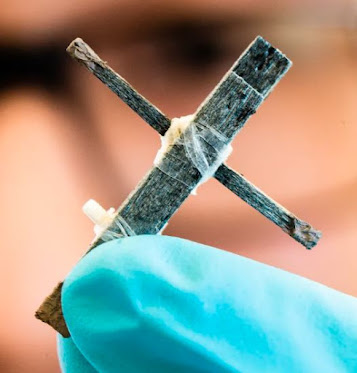The development of new technologies in electronics continues to break new ground, with recent advances in wood-based transistors showing great promise for the future of sustainable and environmentally friendly electronics. The use of wood as a material for electronics is not a new concept, but the recent advancements in wood-based transistors have shown significant improvements in performance and stability.
The wood transistor, which is made using a thin piece of wood coated with a conductive polymer, has been shown to be an effective and reliable alternative to traditional silicon-based transistors. This innovation could have a significant impact on the electronics industry, providing a more sustainable and eco-friendly option for the development of electronic devices.
One of the main advantages of wood-based transistors is that they are biodegradable, which means that they can be easily disposed of without harming the environment. This is a major benefit in a world where electronic waste is becoming a growing concern. The use of wood also has the potential to reduce the carbon footprint of the electronics industry by replacing traditional, non-renewable materials with a sustainable and renewable alternative.
Furthermore, wood-based transistors have demonstrated excellent performance in a variety of electronic applications. They have been shown to be stable and reliable over long periods of time, which is crucial for the development of commercial electronic products. They also have the potential to be used in a wide range of electronic devices, from sensors to memory devices.
While there is still much research to be done in the field of wood-based electronics, the development of wood transistors is a significant step towards creating a more sustainable and eco-friendly future for the electronics industry. It highlights the importance of pursuing alternative materials and methods for developing electronic devices, with a focus on reducing waste and preserving the environment.
In conclusion, the development of wood-based transistors is a promising innovation that could have a significant impact on the electronics industry. The use of wood as a material for electronics provides a more sustainable and eco-friendly option that has the potential to reduce electronic waste and lower the carbon footprint of the industry. With further research and development, wood-based transistors could become a vital part of the future of electronic devices.
One of the potential applications for wood-based transistors is in wearable technology. Because wood is a flexible and lightweight material, it could be ideal for creating comfortable and durable wearable electronics. Additionally, the biodegradability of wood-based transistors could make them ideal for creating disposable or temporary wearable devices, such as medical sensors that are only needed for a short period of time.
Another potential application for wood-based transistors is in the field of environmental monitoring. Sensors made from wood transistors could be used to monitor air and water quality, as well as other environmental factors. Because wood is a natural material, it is less likely to interfere with environmental readings, making it an ideal choice for environmental monitoring applications.
The development of wood-based transistors is also an example of how nature-inspired solutions can be used to address modern challenges. The use of wood as a material for electronics is inspired by the structure of wood itself, which is made up of long chains of cellulose that conduct electricity. By looking to nature for inspiration, researchers are finding new and innovative ways to solve complex technological problems.
Overall, the development of wood-based transistors is a promising innovation that has the potential to revolutionize the electronics industry. By providing a sustainable and eco-friendly alternative to traditional electronic materials, wood-based transistors could help to reduce electronic waste and lower the carbon footprint of the industry. As research continues in this field, we can look forward to more exciting advancements in sustainable and nature-inspired electronics.



Your comments are greatly valued, and we appreciate your participation.